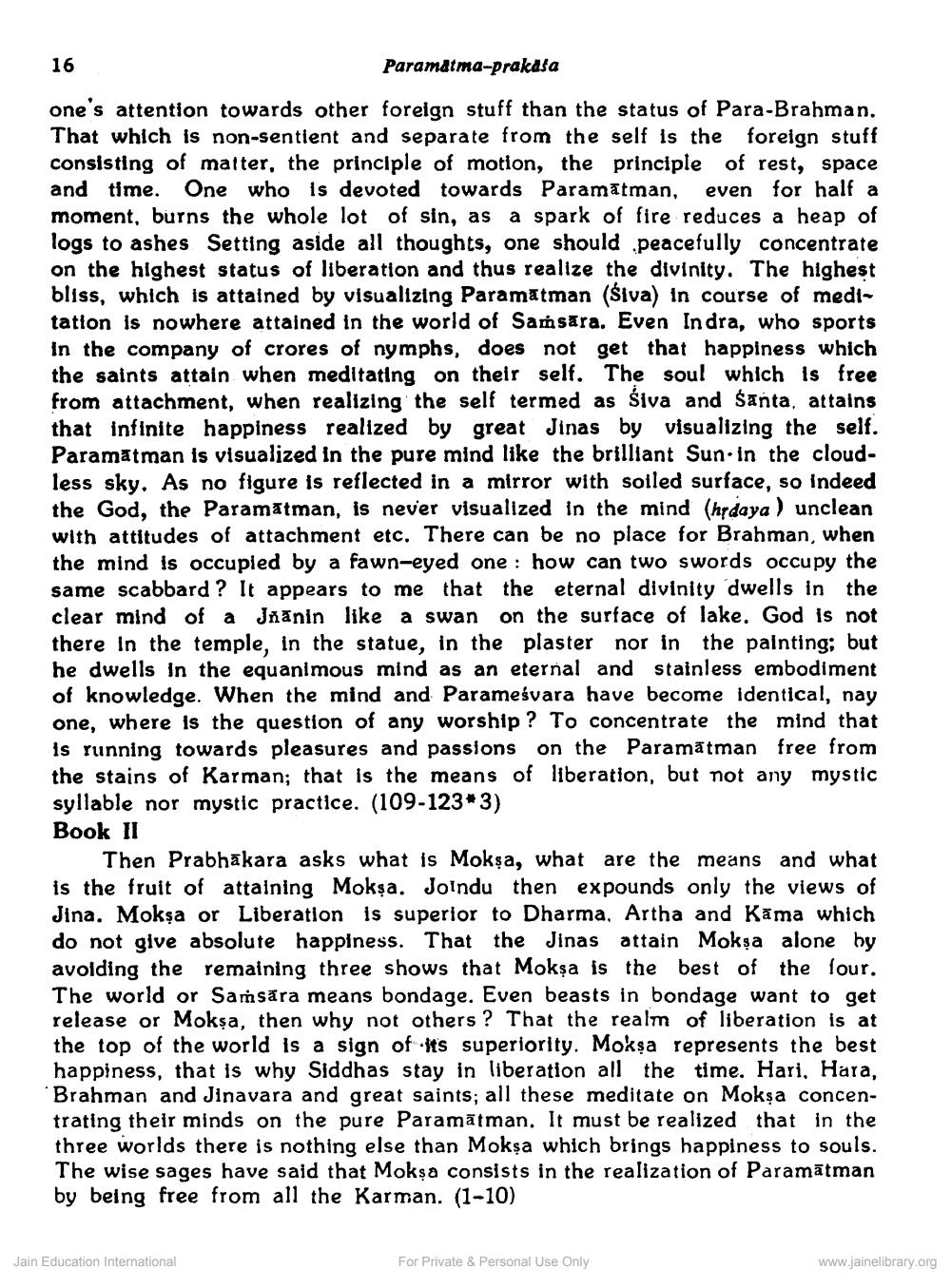________________
16
Paramdtma-prakasa
one's attention towards other foreign stuff than the status of Para-Brahman. That which is non-sentient and separate from the self is the foreign stuff consisting of matter, the principle of motion, the principle of rest, space and time. One who is devoted towards Paramātman, even for half a moment, burns the whole lot of sin, as a spark of fire reduces a heap of logs to ashes Setting aside all thoughts, one should peacefully concentrate on the highest status of liberation and thus realize the divinity. The highest bliss, which is attained by visualizing Paramātman (Siva) in course of meditation is nowhere attained in the world of Sansara. Even Indra, who sports In the company of crores of nymphs, does not get that happiness which the saints attain when meditating on their self. The soul which is free from attachment, when realizing the self termed as śiva and Santa, attains that infinite happiness realized by great Jinas by visualizing the self. Paramātman is visualized in the pure mind like the brilliant Sun in the cloudless sky. As no figure is reflected in a mirror with soiled surface, so indeed the God, the Paramātman, is never visualized in the mind (hrdaya ) unclean with attitudes of attachment etc. There can be no place for Brahman, when the mind is occupied by a fawn-eyed one : how can two swords occupy the same scabbard ? It appears to me that the eternal divinity dwells in the clear mind of a Jáānin like a swan on the surface of lake. God is not there in the temple, in the statue, in the plaster nor in the palnting; but he dwells in the equanimous mind as an eternal and stainless embodiment of knowledge. When the mind and Parameśvara have become identical, nay one, where is the question of any worship? To concentrate the mind that is running towards pleasures and passions on the Paramātman free from the stains of Karman; that is the means of liberation, but not any mystic syllable nor mystic practice. (109-123*3) Book II
Then Prabhākara asks what is Mokşa, what are the means and what is the fruit of attaining Mokşa. Joindu then expounds only the views of Jina. Moksa or Liberation is superior to Dharma, Artha and Kama which do not give absolute happiness. That the Jinas attain Moksa alone hy avoiding the remaining three shows that Moksa is the best of the four. The world or Samsāra means bondage. Even beasts in bondage want to get release or Moksa, then why not others? That the realm of liberation is at the top of the world is a sign of its superiority. Moksa represents the best happiness, that is why Siddhas stay in liberation all the time. Hari, Hara, Brahman and Jinavara and great saints; all these meditate on Moksa concentrating their minds on the pure Paramātman. It must be realized that in the three worlds there is nothing else than Moksa which brings happiness to souls. The wise sages have said that Moksa consists in the realization of Paramātman by being free from all the Karman. (1-10)
Jain Education International
For Private & Personal Use Only
www.jainelibrary.org




